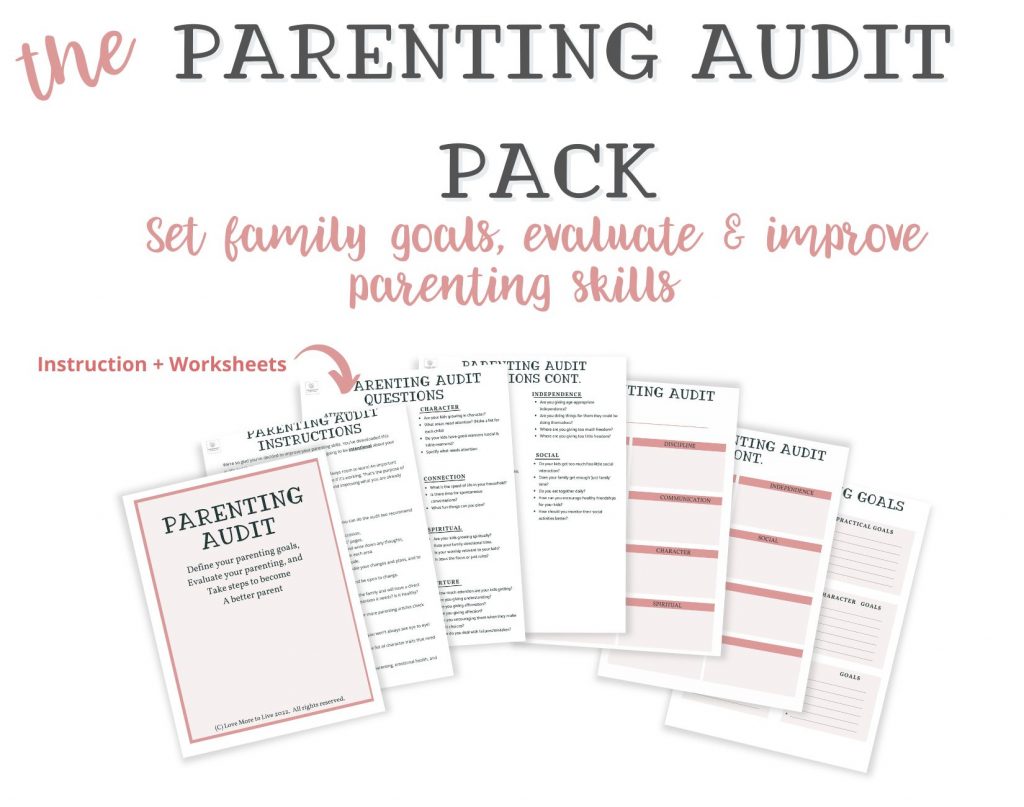Do You Have A Child-Run Home?

Who’s in charge at your house? You or your kids?
Have you surrendered your authority and put your children in charge?
In this post we’ll look at how to recognise a child-run home and the dangers of child-centered parenting. We’ll also look at how to avoid this kind of parenting.
What is child-centered parenting?
Child-centered parenting makes the children more important than the adults. It puts the child’s needs, wants, and preferences above those of the parents.
All decisions are made or influenced by the children and the parents feel obligated to allow their children a voice in most family matters.
In short, the kids are the sun and the parents orbit around them in submission.
How to recognise a child centered home
Not sure if you have a child-run home? Here are a few hints:
- You can’t serve certain foods because your children refuse to eat them. Or, you prepare meals in two batches because the kids eat differently to the way you do.
- You only go to restaurants that have a place for the kids to play.
- You don’t go to certain places or visit certain people because the kids would be bored or they don’t get on with the other kids.
- You don’t go to church because your kids can’t last the service.
- You change churches or schools because your child doesn’t get on with another child in their class.
- You withhold critical feedback (correction when they do wrong) because you don’t want to damage your child’s self-esteem.
- Your child orders you around and you obey. “Bring me some water.” “I’m not eating this today.” “I’m not getting in the car if I can’t take the dog with me.”
- You don’t ask your children to do home chores because you feel sorry for them, or they don’t do them when you do ask.
- Your child has angry outbursts when you don’t do what they want you to.
- You often say, “My son refuses to…” or “My child won’t tolerate…”
- Your children are allowed to interrupt you when you are talking or dominate adult conversation by loud talking or noises.
- Your kids resist your authority at every turn, and you back down.
Related: How to Deal with Tantrums
The problem with child-centered parenting
The child-centered approach to parenting was born of good intentions. It was meant to provide an alternative to the parent-centered approach which was pretty authoritarian.
Child-centered parents love their children and want to teach them independence. They want to promote their individuality and creativity. These are all good values, but while they are good values, they are also one-sided values.
Child-centered parenting fails to provide the direction that children need to develop these values.
Instead,
It produces self-centred children because the world revolves around them. They often grow up with an attitude of expectation – the world owes them and when things don’t go their way they get mad.
It also diminishes or substitutes the primary relationship in the family – the parent’s relationship with each other. Parents become so child-focused that they neglect their relationship.
“Child-centered parenting runs the risk of producing entitled, narcissistic children who lack the capacity to persevere and cope with difficulty. This is because there is a fine line between being “loving” and being “indulgent”.
You’ll save your kids a ton of trouble if you teach them that the world does not revolve around them.
How to avoid child-centered parenting
Make your home a God-centered home
Seek God’s will for your family and let your kids know that God’s will is your priority. When you do this you will not make your children the center of everything.
Help your kids realise that the world is not theirs for the taking
Don’t child-proof your home. Kids do not have the right to touch or play with anything and everything. Allow some things to stay where he or she can reach them and teach them what the word “No” means. See this as an opportunity to train your child in obedience. (God didn’t remove the tree from the Garden of Eden. He left it there to test obedience.)
Don’t rescue
Allow your child to feel the consequences of his or her actions. Don’t solve every conflict at school or at home. Help them learn to fight their own battles. When you rescue your child you deprive him of the learning and character growth that comes from conflict with others. Conflict teaches us to look at ourselves and see our mistakes and make changes.
Evaluate your parenting, set family goals, establish definite aims for your family by doing the parenting audit: (click the image)
Teach your children to serve others
This begins at home. Give them chores to do and expect them to be done cheerfully and properly. Get involved in some kind of missionary project. This teaches kids to live for something bigger than themselves and develops unselfishness.
Don’t talk about your child in front of other people
By telling their latest cute escapade or laughing about their antics in front of them, your child learns to show off and enjoy being the center of attention. You are training your child to seek attention. (Often we do this because our children’s cuteness and abilities boost our own self-worth.)
This doesn’t mean you can’t give healthy praise when they do something well.
Give critical feedback
– ie correction when your child is rude, ill-mannered, treats others unkindly, or throws a tantrum.
Validate their emotions but don’t let the world revolve around them
Teach them emotional regulation. Children do need to be heard and understood, but they don’t need to be in control.
It is true that children have rights, but those rights don’t make them equal to adults. They must learn to submit to authority and that life has limits.
Parents who emphasize loving care over high expectations tend to have more conflict in their homes than not.
Moms and Dads need to find the balance between supporting and directing their kids. Kids are born incomplete and they need both the direction and support of loving parents to help complete them.
Children come into life with some surprising talents and abilities but that does not mean they don’t need help in completing their development. They need the direction and guidance of parents to help them grow.
So, love them fiercely, but don’t let the world revolve around them.
Where does your parenting fall on the scale? Do you lean more toward child-centered parenting? What can you do to change that?




Leave A Comment